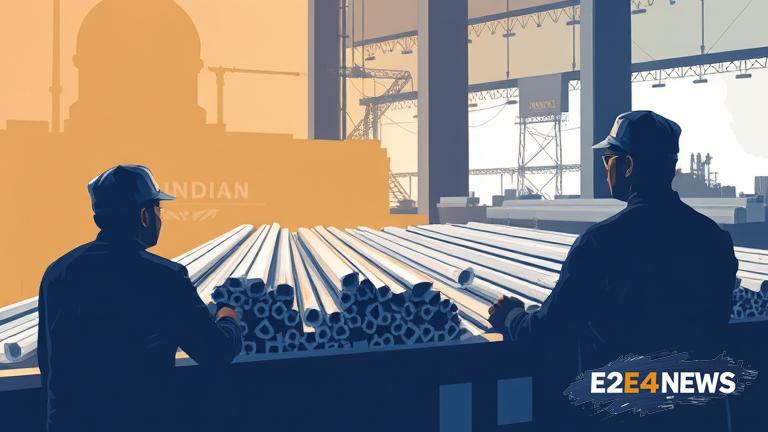The Indian aluminium extrusion sector is currently facing a crisis due to the imposition of tariffs by the US government and the influx of cheap imports from countries such as China. The sector, which provides employment to thousands of people, is struggling to stay afloat amidst these challenges. Industry leaders have been urging the government to provide support to the sector, including the imposition of anti-dumping duties on cheap imports. The US tariffs on aluminium products have resulted in a significant decline in exports from India, further exacerbating the problems faced by the sector. The Indian government has been requested to negotiate with the US government to exempt Indian aluminium products from these tariffs. Meanwhile, the influx of cheap imports from China has been hurting the domestic industry, with many manufacturers struggling to compete with the low prices. The industry has been seeking government support in the form of trade remedies, including anti-dumping duties, to protect the domestic industry from unfair trade practices. The government has been urged to take immediate action to support the sector, including the provision of financial assistance and the implementation of policies to promote the use of domestic aluminium products. The aluminium extrusion sector is a significant contributor to the Indian economy, with a turnover of over Rs 20,000 crore. The sector provides employment to thousands of people, both directly and indirectly, and is a key player in the country’s manufacturing sector. The industry has been facing significant challenges in recent years, including the rise of cheap imports and the imposition of tariffs by the US government. Despite these challenges, the sector remains optimistic about its future prospects, with many industry leaders believing that the government will provide the necessary support to help the sector recover. The government has been requested to provide a level playing field for the domestic industry, including the imposition of trade remedies to protect the sector from unfair trade practices. The industry has also been seeking support in the form of financial assistance, including loans and subsidies, to help manufacturers stay afloat amidst the current challenges. The aluminium extrusion sector is a critical component of the Indian manufacturing sector, with the sector providing a wide range of products, including profiles, sheets, and foils. The sector is also a significant contributor to the country’s exports, with many Indian manufacturers exporting their products to countries around the world. The imposition of US tariffs on aluminium products has resulted in a significant decline in exports from India, with many manufacturers struggling to stay afloat amidst the current challenges. The industry has been urging the government to negotiate with the US government to exempt Indian aluminium products from these tariffs, which would help to boost exports and support the domestic industry. The government has been requested to take immediate action to support the sector, including the provision of financial assistance and the implementation of policies to promote the use of domestic aluminium products. The aluminium extrusion sector is a significant contributor to the Indian economy, and the government has been urged to provide the necessary support to help the sector recover. The industry remains optimistic about its future prospects, with many industry leaders believing that the government will provide the necessary support to help the sector grow and develop. The sector is expected to play a critical role in the country’s manufacturing sector in the coming years, with many industry leaders believing that the sector has the potential to become a significant contributor to the country’s economy. The government has been requested to provide a level playing field for the domestic industry, including the imposition of trade remedies to protect the sector from unfair trade practices. The industry has also been seeking support in the form of financial assistance, including loans and subsidies, to help manufacturers stay afloat amidst the current challenges.
